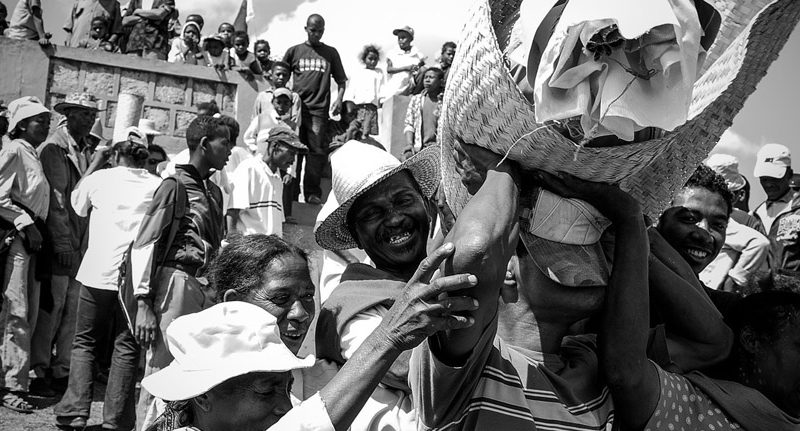Madagascar Famadihana Malagasy: The Unique Funeral Tradition of Madagascar
Madagascar is a land rich in culture, traditions, and history, and among its most fascinating customs is the Madagascar famadihana Malagasy, a unique ritual that combines ancestral veneration, music, and community celebration. Known as the “turning over of the dead,” this practice is more than a funeral—it is a vivid reminder of the Malagasy philosophy of life, death, and continuity.
What Is the Madagascar Famadihana Malagasy?
The Madagascar famadihana Malagasy is a traditional ritual observed in certain regions of Madagascar, particularly in the Highlands. Literally translating to “turning over the dead,” the ceremony involves exhuming the remains of ancestors, wrapping them in fresh shrouds called lamba, and parading them around the tomb with music, dance, and communal celebration before reburial.
Unlike Western funeral customs, famadihana is not an immediate farewell but a long-term process of honoring ancestors. Malagasy philosophy holds that the souls of the deceased only fully join the realm of ancestors after their bodies have completely decomposed and the appropriate ceremonies have been performed.
Historical Roots of the Famadihana
Though the current form of Madagascar famadihana Malagasy likely emerged after the 17th century, the practice is an evolution of older “double funeral” traditions. Similar rituals have been observed in ancient civilizations across Southeast Asia, Egypt, the Near East, and even Greece. The Malagasy adaptation emphasizes periodic celebration and ancestral connection, reflecting the island’s deep-rooted spiritual and communal values.
How the Madagascar Famadihana Malagasy Ceremony Is Performed
Preparation of the Ancestors’ Remains
The ceremony begins with exhuming the bones of deceased family members. Each set of remains is carefully cleaned, wrapped in a fresh lamba, and prepared for the ceremonial procession. Families often spend weeks planning the event, ensuring that every aspect aligns with tradition and respect.
Music, Dance, and Community Gathering
During the procession, relatives, friends, and neighbors accompany the ancestors’ remains, dancing and singing. Traditional Malagasy music and drums create a lively atmosphere, transforming what might otherwise be a somber event into a joyous, life-affirming celebration.
Reburial and Renewal
After the festivities, the remains are ceremoniously reburied. The silk shrouds are renewed, symbolizing respect, renewal, and the continuation of family bonds. Typically, these ceremonies occur every seven years or in response to a family member’s dream of an ancestor requesting the ritual.
Cultural Significance of Madagascar Famadihana Malagasy
The Madagascar famadihana Malagasy serves multiple cultural and spiritual purposes:
-
Ancestral Veneration: It reinforces the connection between living descendants and their forebears.
-
Community Cohesion: Families and villages come together in a shared celebration, strengthening social bonds.
-
Philosophical Beliefs: It embodies the Malagasy view of life, death, and the cyclical nature of existence.
For the Malagasy, death is not an end but a transition. Famadihana ensures that the ancestors are honored, remembered, and integrated into the ongoing life of the family.
Why Tourists Are Drawn to Madagascar Famadihana Malagasy
In addition to its spiritual importance, Madagascar famadihana Malagasy attracts curious travelers seeking an authentic cultural experience. Observing or participating in the ceremony offers a rare glimpse into Malagasy customs, music, and community life, making it a profound cultural encounter for those who respect local traditions.
When and Where to Witness Madagascar Famadihana Malagasy
While the ritual is most commonly observed in the Highlands region, the timing can vary. Famadihana typically occurs every seven years, after a new death, or when a family member dreams of an ancestor requesting the ceremony. Travelers should always seek permission before attending, as the event is sacred and deeply personal for participating families.
Conclusion: Embracing Madagascar’s Rich Traditions
The Madagascar famadihana Malagasy is far more than a funeral; it is a celebration of life, a reaffirmation of family ties, and a testament to the Malagasy respect for ancestry. For anyone seeking to understand Madagascar’s soul, witnessing this ritual offers an unforgettable glimpse into a culture where the past, present, and future are intertwined in a vibrant, communal dance of life and memory.
HT AGENCY TOURS
Luxury Madagascar with the best luxury African safari tours packages. Discover your next perfect destination with HT Agency Tours

